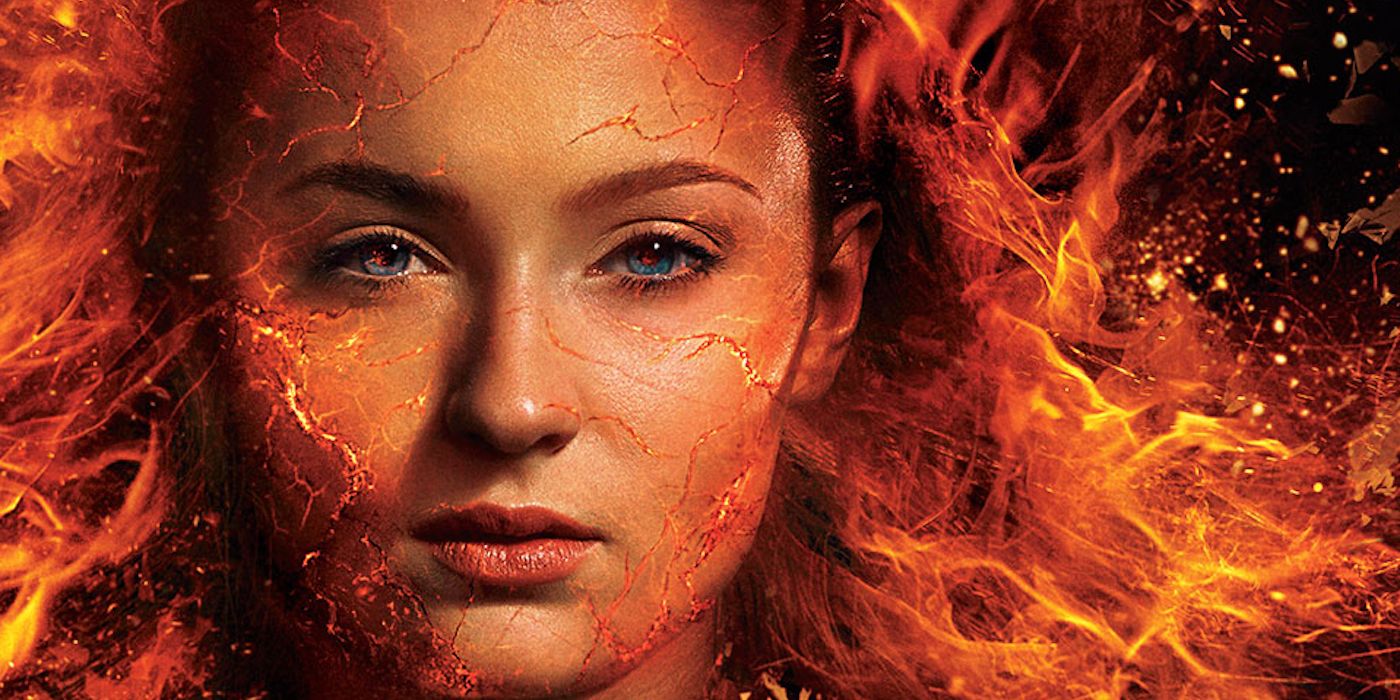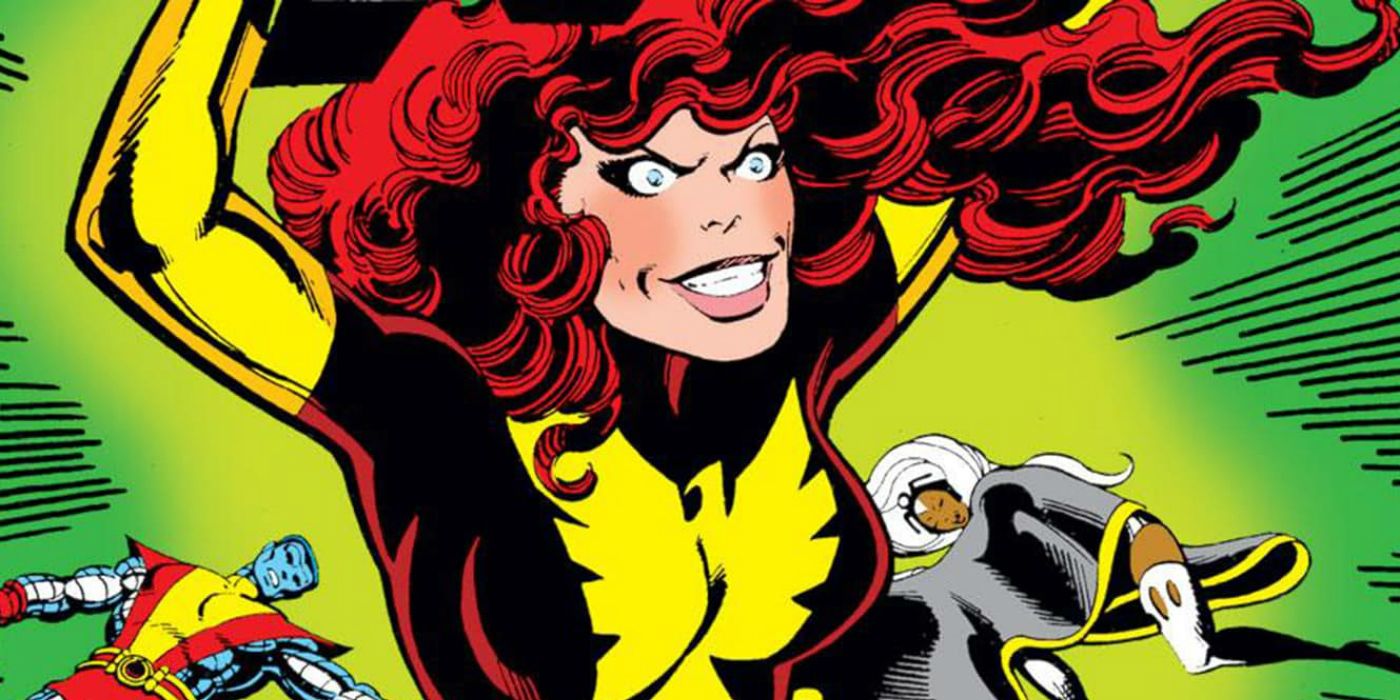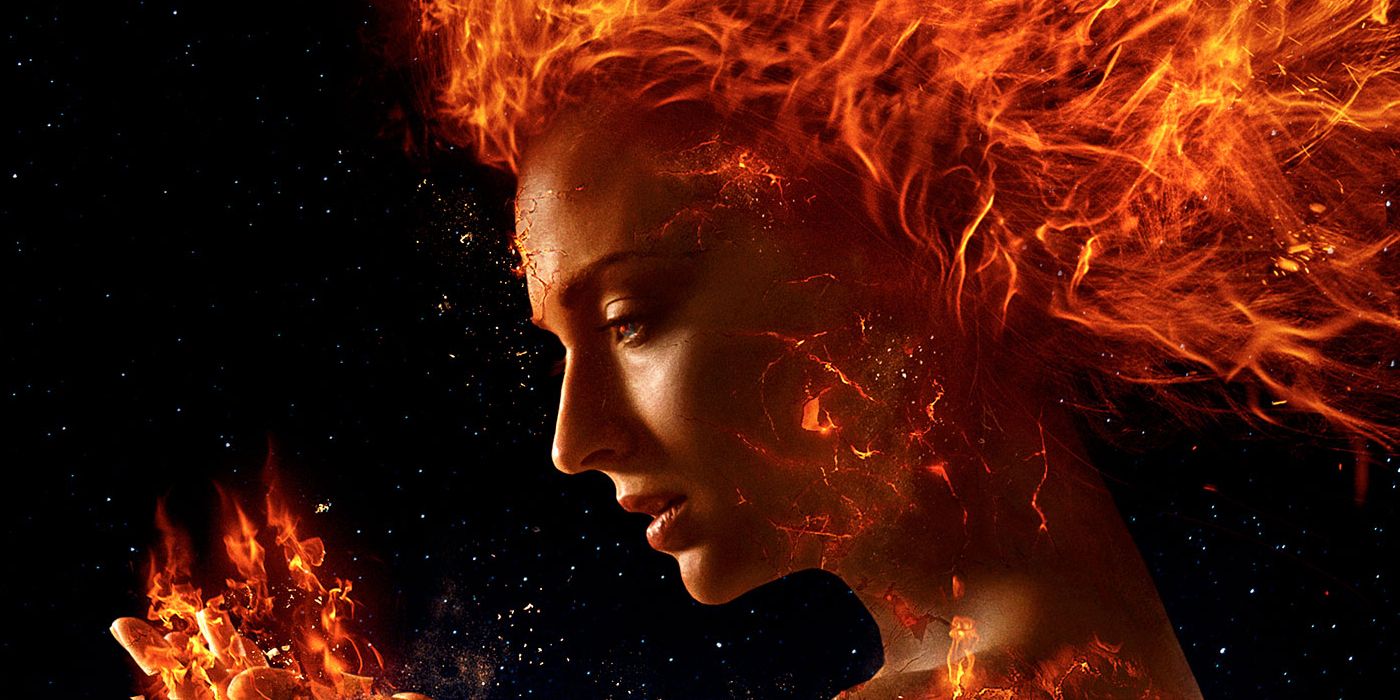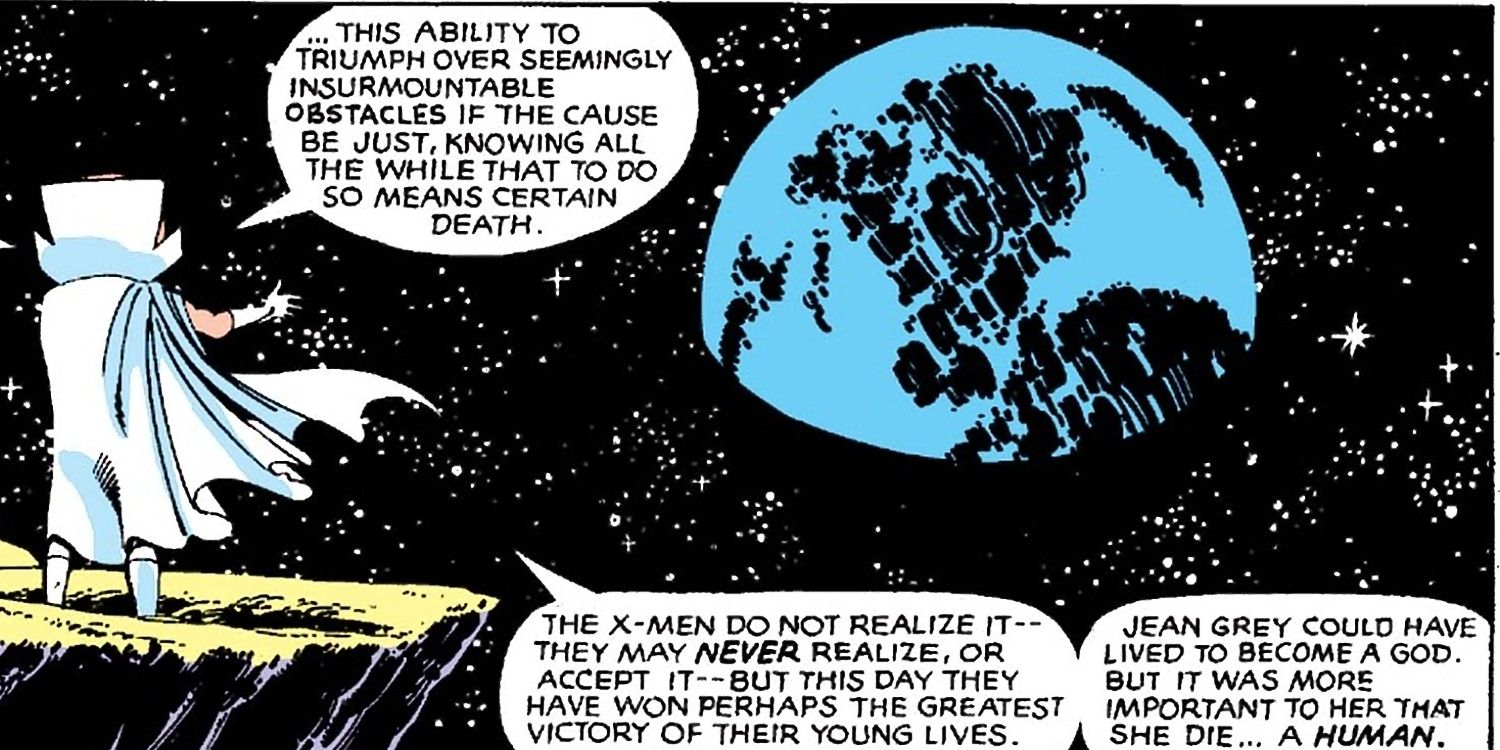WARNING: The following contains spoilers for Dark Phoenix, in theaters now.
"The Dark Phoenix Saga" is one of the defining tragedies in superhero comics. Especially at Marvel, the story carries a resonance that comics of the era often lacked: a genuinely fraught tale of lovers splintered by the machinations of cruel souls and the patriarchy trying to restrain an unbridled female power. It's a story, ultimately, about the power of choice, played out on a cosmic scale.
No version of the story has ever tried to give it a joyful conclusion. It'd be akin to ending a production of Hamlet with a peppy musical number about the power of friendship. But, Dark Phoenix bucks this tradition in its climax. It actually gives Jean Grey a bittersweet, gently hopeful finale, the closest thing the story has ever had to a happy ending, along with some other interesting tweaks to the original.
THE DARK PHOENIX SAGA
The original "Dark Phoenix Saga" was published in the pages of Uncanny X-Men #129-138 throughout 1980. The story was the conclusion to the "Phoenix" subplot, which had been running in the title since #100. After assuming her cosmic powers and learning to embrace them, Jean found herself targeted by malicious forces. Among the new figures in her life was the (secretly) villainous Mastermind, a mutant who was working with the Hellfire Club to corrupt Jean into becoming their Black Queen so they could use her cosmic powers for their own gain.
Their plan worked too well, and the Dark Phoenix was unleashed. Fully taking charge of her powers (at the cost of her humanity), Jean made quick work of the X-Men before flying into space and thoughtlessly consuming a star. This led to Jean's arrest by the Shi'Ar, as the exploding sun destroyed an entire inhabited planet.
Although the X-Men tried to save the life of their friend in a trial by combat, most of the team was defeated by the Imperial Guard. Only Jean and her lover Cyclops remained on their feet. Feeling the cosmic power threatening to consume her once more, Jean chose to kill herself instead of risking the lives of her loved ones.
X-MEN: DARK PHOENIX
Dark Phoenix simultaneously tries to broaden and deescalate the scope of the narrative. Jean doesn't leave Earth of her own volition, and certainly doesn't destroy a planet. Instead, her powerful outbursts lead to the accidental death of her teammate, Mystique. Instead of the mutant-led Hellfire Club targeting her, it's the alien D'Bari who want to control the Phoenix Force. Their leader, Vuk, even devises a plan to siphon off cosmic power into herself.
Deciding to fully accept her powers and herself, Jean manages to fight back against Vuk. Realizing the damage she's causing to those around her (notably Cyclops), Jean wipes out most of the D'Bari and takes Vuk into space. There, she burns Vuk to a cinder and fully embraces the power of the Phoenix. She loses her human form, and "evolves" into the cosmic firebird. The film ends with the X-Men (particularly Cyclops), picking up the pieces of their lives in the aftermath. The final shot of the film is the Phoenix Force flying over the Earth.
WHY THE DIFFERENCES MATTER
The original story is one of the defining tragedies of superhero comics. "The Dark Phoenix Saga" doesn't have a triumphant ending or even a bittersweet one. It ends with Jean choosing to die rather than risk the lives of her loved ones, a harrowing story of humanity prevailing over power. Later retcons and resurrections would over-complicate the -- let's be honest: somewhat problematic -- original story, turning a cosmic soap opera into an infamously confusing mess. The original comic doesn't end in muted triumph or even bittersweet survival. It ends with Cyclops weeping over the ashes that were his fiancee, while the Watcher spells out the moral of the story. It is pure tragedy.
Dark Phoenix, meanwhile, updates the story and makes the ending more ambiguous. The final monologue of the film, spoken as voiceover by Jean, implies she -- as a person -- still very much exists. She may not be alive in our definition of the word. But, she's become one with something cosmic. She's evolved. This is the best possible ending for Jean in this story. She doesn't turn away her powers and she isn't killed by them either. She doesn't even truly sacrifice herself to keep it in check. Jean embraces the Phoenix and becomes it. She loses Cyclops, but in doing so she saves his life. On top of that, she survives, something that almost never happens during adaptations of this story.
This fundamentally changes the tone of the climax and the story as a whole. The narrative becomes about embracing one's true power instead of being a cautionary tale of how power can corrupt. It's melancholic but hopeful. It's a triumphant ending for the character -- something the original is most certainly not. And, it makes sense why Jean would survive this new version of the story, giving the overall changes to the original.
Directed and written by Simon Kinberg, Dark Phoenix stars James McAvoy, Michael Fassbender, Jennifer Lawrence, Nicholas Hoult, Sophie Turner, Tye Sheridan, Alexandra Shipp, Kodi Smit-McPhee, Evan Peters and Jessica Chastain.




